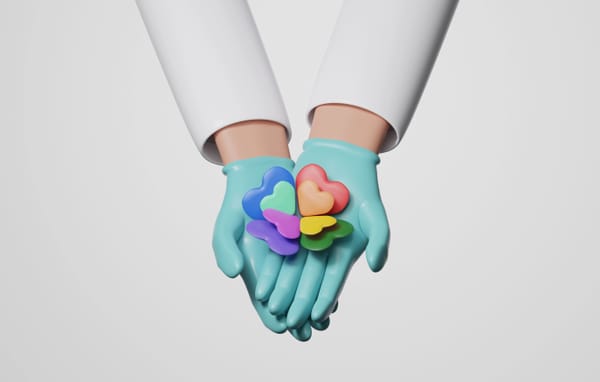Navigating Relationships Through Transition

One of the toughest challenges you might face while navigating relationships during your transition is the fear of rejection and discrimination. As you go through this personal journey, it’s natural to worry about how your partners will react to your changing identity and whether your love can survive these changes. This anxiety can be made worse by societal stigma, which can hurt your self-esteem and add extra pressure to your relationships. You may feel nervous about sharing your gender identity with potential partners, fearing negative reactions or losing affection. This internal struggle can lead to feelings of loneliness, as it might seem like others don’t understand or validate your experiences. Overall, dealing with personal identity changes while facing societal pressures can make it really hard for you to fully embrace love and friendship during this important time in your life.
To help you navigate these complex dynamics, here are some practical tips for building and maintaining healthy relationships during your transition period. From encouraging open communication to seeking support and understanding each other’s needs, these strategies can empower you and your loved ones to strengthen your connections and thrive together.
Thriving in Love and Friendship: Your How-To Guide
Communicate Openly and Respectfully
- Share Your Journey: Be open about your experiences and feelings. Honest communication fosters trust and helps deepen emotional connections.
- Listen with Empathy: Make an effort to truly hear your partner or friend’s thoughts and feelings. This creates a safe space for everyone to express themselves.
Set and Honor Boundaries
- Define Your Comfort Zones: Discuss what feels comfortable for you in your relationships, whether it’s about personal space, intimacy, or sharing experiences.
- Respect Others' Limits: Recognize that everyone has their own boundaries. Acknowledging these helps build mutual respect.
Celebrate Diversity in Friendships
- Embrace Differences: Every individual has a unique story. Celebrate the diversity within the trans community by appreciating different backgrounds and experiences.
- Learn from Each Other: Engage in conversations that allow you to learn about each other’s journeys, fostering deeper connections.
Be Patient and Understanding
- Practice Patience: Transitioning can be a complex process for many. Understand that both you and your friends or partners may need time to adjust to changes.
- Forgive and Move Forward: If conflicts arise, practice forgiveness to keep relationships healthy and thriving.
Spend Quality Time Together
- Engage in Shared Activities: Whether it’s attending community events, exploring new hobbies, or simply hanging out, quality time strengthens bonds.
- Prioritize Connection: Regular check-ins with friends or partners can help maintain closeness and support.
Seek Support When Needed
- Reach Out for Help: If navigating relationships becomes overwhelming, consider seeking guidance from a therapist who specializes in LGBTQ+ issues or joining support groups where you can share experiences with others facing similar challenges.
Know When to Let Go
- Recognize Toxic Relationships: Not all friendships or romantic connections will be healthy. If a relationship becomes detrimental to your well-being, it’s okay to step back or let go.
Relationship Support Resources
- Therapy and Counseling Services: Look for therapists specializing in gender identity issues or LGBTQ+ relationships.
- Online Support Groups: Online platforms like Point of Pride offer resources and community support for individuals navigating transition while in relationships.
- Educational Materials: Organizations such as Love is Respect provide guides on supporting partners through transition, including emotional check-ins and resources for understanding gender identity.
- Local LGBTQ+ Centers: Check with local centers in your area. Many provide workshops, counseling, and support groups tailored to transgender individuals and their families.



